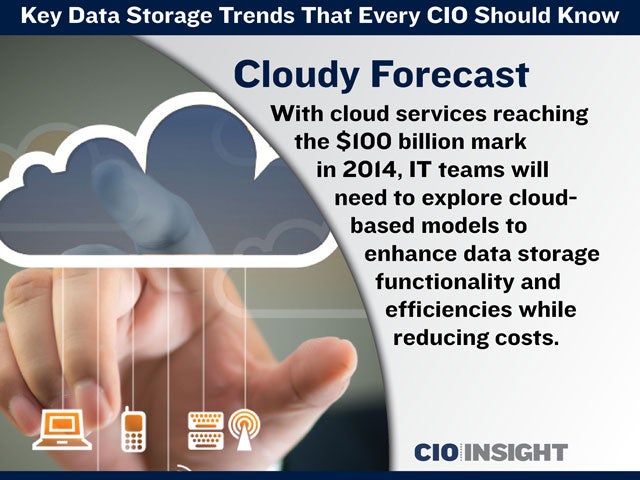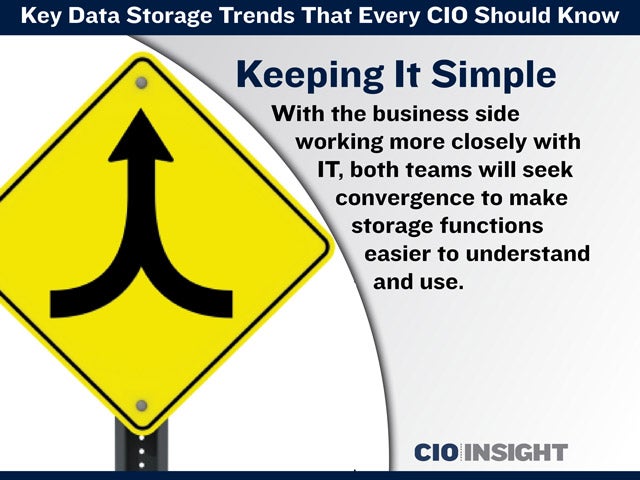
Key Data Storage Trends That Every CIO Should Know
 SaaU
SaaU
As in “Storage as a Utility.” Users will go from work to home to the beach, etc., while possessing all their storage platform and infrastructure needs on a device through high-performance Solid State Disk (SSD) containers.
 Flash Forward
Flash Forward
The cost of Flash is rapidly declining, and will eventually help position SSD technology to become more affordable than traditional disks.
 Compelling Capacity
Compelling Capacity
What’s called shingled magnetic recording (SMR) technology will allow for 5 TB storage hard drives this year, and 20 TBs by 2020.
 Cost Containment
Cost Containment
While data’s expanding volume creates budget issues, the price of storage is rapidly declining to 5 cents per GB.
 Cloudy Forecast
Cloudy Forecast
With cloud services reaching the $100 billion mark in 2014, IT teams will need to explore cloud-based models to enhance data storage functionality and efficiencies while reducing costs.
 Out With the Old
Out With the Old
Given the surging interest in cloud and virtualization options, traditional IT environments will account for less than 30% of deployed storage.
 Small Is Good
Small Is Good
As big data continues to proliferate, organizations will turn to thin provisioning, compression and other innovations to reduce data’s demand on storage systems.
 Always Available
Always Available
Given the ever-elevating importance of data analytics, storage teams will push for better security, backup and disaster-recovery strategies.
 Keeping It Simple
Keeping It Simple
With the business side working more closely with IT, both teams will seek convergence to make storage functions easier to understand and use.
 Lighter Than Air
Lighter Than Air
Helium-filled hard drives will boost storage-systems speed while using less power to operate.